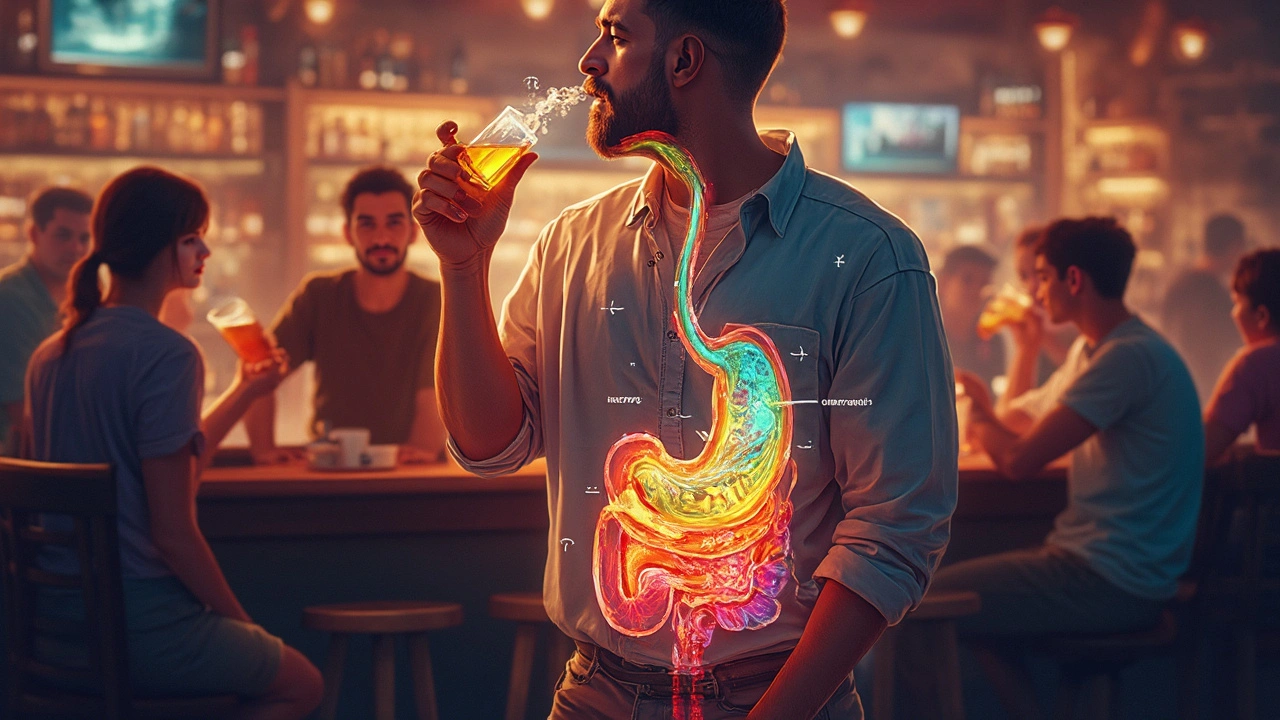Alcohol and Medications: What You Should Know
Mixing alcohol with medications isn't just a bad idea—sometimes it can be dangerous. Whether it's prescription drugs, over-the-counter meds, or supplements, alcohol can change how these work in your body. This can lead to side effects getting worse, the medicine losing its punch, or unexpected health troubles.
Here’s the deal: alcohol affects your liver and metabolism, which are the main systems that break down medicines. When you drink, these systems might slow down or speed up, causing drugs to pile up or disappear too fast. This mix-up can make some meds stronger, leading to unwanted effects, or weaker, making them less effective.
Common Medications That Alcohol Affects
Think about painkillers like ibuprofen and acetaminophen. Drinking alcohol while taking these can hurt your liver or stomach lining more than either would alone. Or take antibiotics—some, like metronidazole, can cause horrible reactions if you sip even a little alcohol.
Another example is antidepressants, such as Wellbutrin or others. Drinking can mess with how these medicines stabilize your mood and may increase risks like dizziness or drowsiness. Plus, mixing alcohol can make you feel much more tired or lightheaded than expected, which can be dangerous if you’re driving or operating machines.
Tips to Stay Safe When Taking Medications and Using Alcohol
Here’s the straightforward advice: always check your medication label or ask your doctor if drinking alcohol is okay. If you’re unsure, skip the alcohol until you get clear guidance. Sometimes, timing matters too—drinking a glass of wine hours after your dose might be safe, but doing it together might not.
Remember, even small amounts of alcohol can cause problems with certain meds, so don’t assume a little is harmless. Be extra cautious if you’re on multiple medications, as alcohol might interact with more than one drug at a time.
Finally, watch how your body reacts. If you notice unusual tiredness, upset stomach, mood changes, or anything odd, stop drinking and talk to a healthcare professional. They can help figure out if alcohol or the combination with your meds is causing trouble.
Understanding the connection between alcohol and medications helps you avoid risks and keep your treatment on track. It’s worth being careful and informed—I promise it pays off when it comes to your health.

